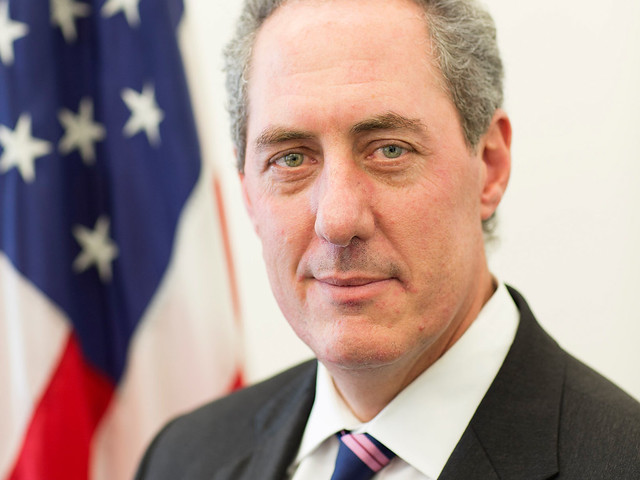Return of GSP seems far off – a lot more must be done
 Bangladesh’s progress in implementation of the National Tripartite Plan of Action on Fire Safety and Structural Integrity (the Action Plan) which provides a basis for the U.S.A. to consider the reinstatement of Generalised System of Preferences (GSP) trade benefits remains bellow expectation, according to an interagency review led by the Office of the U.S. Trade Representative (USTR).
Bangladesh’s progress in implementation of the National Tripartite Plan of Action on Fire Safety and Structural Integrity (the Action Plan) which provides a basis for the U.S.A. to consider the reinstatement of Generalised System of Preferences (GSP) trade benefits remains bellow expectation, according to an interagency review led by the Office of the U.S. Trade Representative (USTR).
Economic impact of the GSP withdrawal by the US Government may not be significant for Bangladesh but it carries a strong message.
It concluded that Bangladesh has made some important progress, but must do more to address the worker rights and worker safety issues that led U.S.A. to suspend the country’s Generalised System of Preferences (GSP) trade benefits in June 2013. At the time of the suspension, the U.S.A. provided the Government of Bangladesh with the Action Plan.
“The Obama Administration has been engaging the Bangladesh government and stakeholders over the past year to press for changes to address the worker rights and worker safety issues that led to the President’s decision to suspend GSP trade benefits,” said United States Trade Representative Michael Froman.
“We are seeing some improvements that move us closer to our shared goal of protecting workers from another workplace tragedy such as the April 2013 Rana Plaza building collapse, including a significant increase in the registration of unions. However, we remain concerned about the large number of factories that have yet to be inspected, the lack of progress on needed labor law reforms, and continuing reports of harassment of and violence against labor activists who are attempting to exercise their rights,” he further said.
As the basis for its determination, the Administration reviewed progress by the Government of Bangladesh in implementing the specific measures listed in the Action Plan. The review found that there has been progress in some areas. For example, since June 2013, the Government of Bangladesh has registered approximately 120 new unions in the garment sector, has dropped pending criminal charges against labour activists, is co-operating with the private sector initiatives, the “Alliance” and the “Accord”, on plans to inspect the thousands of factories in the ready-made garment (RMG) sector, and has reportedly suspended operations in approximately 20 factories found to be in imminent danger of structural failure or other catastrophic accident.
However, the review also found that the Government of Bangladesh has not yet implemented substantial parts of the Action Plan. The government is behind schedule in carrying out many hundreds of critical safety inspections in garment factories, as well as meeting its commitments to hire additional inspectors. The government has also been slow to respond to continuing reports of harassment and violence against labor activists. The review concluded that the government needs to develop a credible and effective mechanism for responding to and addressing allegations of unfair labour practices. Since the suspension of GSP, the government has also not advanced the labour law reforms called for in the Action Plan, including changes to ensure that workers are afforded the same rights and protections in Export Processing Zones (EPZ) as in the rest of the country, the USTR said.
In addition to engaging regularly with the Government of Bangladesh, the U.S. Government is also closely co-ordinating with the European Union (EU), the International Labor Organisation (ILO) and other international partners under the July 2013 Sustainability Compact on worker rights and factory safety in Bangladesh. Ahead of the Compact’s one year anniversary, the U.S. Government notes Bangladesh’s progress towards fulfilment of some of the commitments in the agreement and welcomes continued positive collaboration between all signatories in support of Bangladesh’s adoption of international standards in worker rights and safety.
President Obama’s June 2013 decision to suspend Bangladesh’s trade benefits under the GSP programme means that US imports of GSP-eligible products from Bangladesh are no longer eligible for duty-free treatment.
The ready-made garment (RMG) products from Bangladesh, which made 91 per cent of the total export of $4.9 billion in U.S. in 2012, was never given GSP facilities. As a result, Bangladeshi garment exporters continue paying 15.3 per cent duty to enter the U.S. market. Bangladesh paid almost $700 million to the US government in duties on garment export in 2012. The top export items to the U.S.A. under GSP from Bangladesh included tobacco, sports equipment, porcelain china and plastic products.
Legal authorisation for duty-free treatment for all countries under GSP expired on July 31, 2013. The US Congress is considering legislation to renew the programme.
